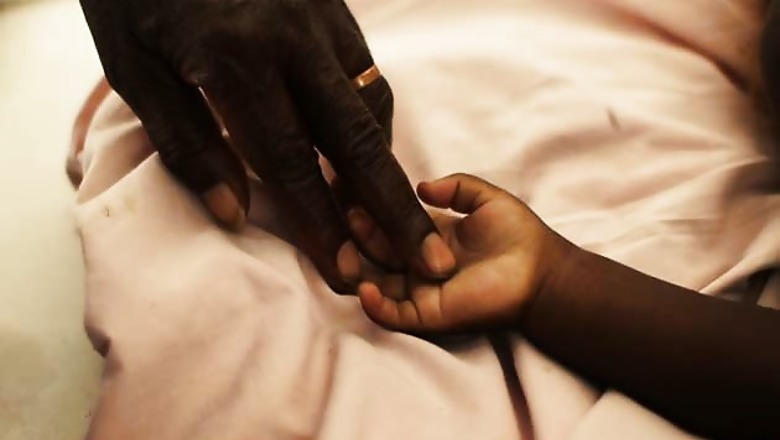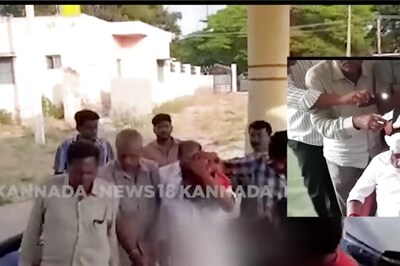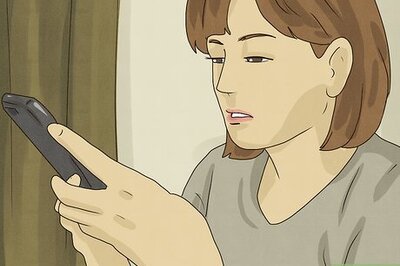
views
What these nine years have taught my wife Vibha and me is this: Adoption is not some kind of special or unusual thing to do. Before Surabhi came to us, I think I imagined that it would indeed be a special happening, and that excited me. Yet today, in what our two children mean to us, there is no difference between Surabhi, whom we adopted, and Sahir, who was born to us.
Yet, too, the excitement is in how normal this feels.
We see our two kids running around the house, teasing and tripping over each other, quarreling over the iPad and watching a film together-things all kids must do. Absolutely the last thought that occurs to us is that they took different routes into our home, into our hearts.
As it should be, of course. I know now, if perhaps I didn't fully comprehend in 2004, that I don't and never want to feel differently about my kids because of the mere detail of how they entered our family. To me, that's something of an epiphany, a thoroughly liberating one.
Before we did it, we thought a lot about adoption. I always believed one reason to do it was scenes we're all familiar with in this country we live in. You know: The boy who got turned away from a fun fair, the woman who did it telling me, "We don't want his kind in here". Watching my son watching a little girl his age come to our rickshaw with that sad pecking gesture, helpless in the knowledge that in time, he will learn to live with it as I have learnt to do, as all Indians have learnt to do.
In some ways, I think about such scenes every day, and have done so for years. Saying this, I'm not trying to make some kind of statement. This is just something I know about myself. And it brings the hard question: What can I do about these kids? What can I do about our greatest national shame, the poverty that blights so many lives?
I really don't know, and that's a dispiritingly limiting thought. That is, except for adopting a child. If there's one abandoned kid whom we can raise as our own, to whom we can offer the arms of a loving family, that's one less child who might end up on our streets. This one thing, then, I can do.
The freedom to adopt, there for the taking.
But we also learnt from other parents. One couple adopted two children but never told them. Came adolescence, already difficult, and the secret blew up in their faces. Several profoundly troubled years followed. No, we didn't want that.
Another couple had an adopted son who knew all along, because the family would celebrate two birthdays-the second being the day he came home. In his teens, the boy suddenly pleaded for them to stop this dual observation. He didn't see it as a special day and he couldn't bear them treating it that way. No, we didn't want that either.
What we did want was a possible tightrope. Adoption is no shame to be shoved under the carpet, yes, but treating it as a triumph is as irrational. We wanted Surabhi to see it as merely normal, ordinary yet special, like birth is ordinary yet special.
All this was on my mind as we began the process, six months before Surabhi came to us. There was a fair amount of paperwork involved, including tax returns and letters of recommendation from friends and relatives. Also a visit from a social worker who spoke to Vibha and me, but separately. Tedious business, but routine.
There were peculiar obstacles also. In 2004, there were only two Indian laws governing adoption. One was the Hindu Adoption and Maintenance Act (HAMA) of 1956. But HAMA is only available to Hindus (and Sikhs, Buddhists and Jains, considered Hindu for legal purposes like this one). Since I am not Hindu, that left the Guardians and Wards Act of 1890 (1890!). But under GAWA, we would be Surabhi's guardians, not her parents, until she turned 18. There are implications here for inheritance and so on: Rules for a ward are different from those for a legally-acknowledged child.
Two things about all this. First, Vibha is Hindu, I am agnostic. We asked our social worker, people at the orphanage and our lawyer: Can we therefore adopt under HAMA? Impossible, they said. One Hindu parent cannot qualify a couple as Hindu for HAMA's purposes. I was even willing, for this adoption, to submit a declaration that I was Hindu. Impossible, they said again. No way that 'D'Souza' could pass the HAMA radar. I suspect this was just the interpretation of those we asked; had we pushed we might have proved our point and adopted under HAMA, even without that declaration. Yet that was the point: This law was an obstacle. Instead of giving everybody the freedom to adopt, it excluded whole swathes of Indians.
Second, but we did hear about a couple in Kerala that challenged GAWA's guardianship doctrine and won a court decision in their favour. With that precedent, our lawyer told us, we could move court to have ourselves legally pronounced Surabhi's parents before she turns 18.
As it turns out, neither of those has been a concern in these years. Though we still need to move court, life with the kids is too full to ponder over the implications of being guardians. The only slightly odd memories, in all this time, are the occasional comments.
Now we fully expected that Surabhi would face barbs from kids at school. That's already happened and I'm sure will keep happening. Kids are curious, after all, and untrammelled by adult notions of what is and is not acceptable. What we can do is raise her to be assured and comfortable about her place in our family, trusting that this much will be her safeguard against getting hurt. This meant we had to feel confident and secure about our home before Surabhi arrived. What kind of relationships do we have? Are they strong and nurturing enough that a new child will feel secure? In answering those, adoption taught us something about ourselves too.
So what did we not expect? The friend who saw Surabhi in Vibha's arms as a baby and asked: "Whose baby is that?"
Vibha: "Ours! We just adopted her!"
Friend (brow and nose wrinkled): "Why?"
Still, remarks like that have been occasional. All in all, raising Surabhi and Sahir has been even more wondrous and fulfilling than we imagined it would be. And only because this article asks for it, I'm trying to sift through experiences that we don't much think about anyway. Surabhi is part of our lives, period. Just as Sahir is. Just as their cousins and aunts and grandparents are. And that's just the way I want it. Sure, there are people who will ask why we adopted our daughter, whereas nobody ever asks why we gave birth to our son.
In an ideal world, nobody would ask either question. But it hardly matters, because either way our answer is the same: "Because we wanted our child."
We wanted Sahir. We wanted Surabhi.
They fill our lives.




















Comments
0 comment